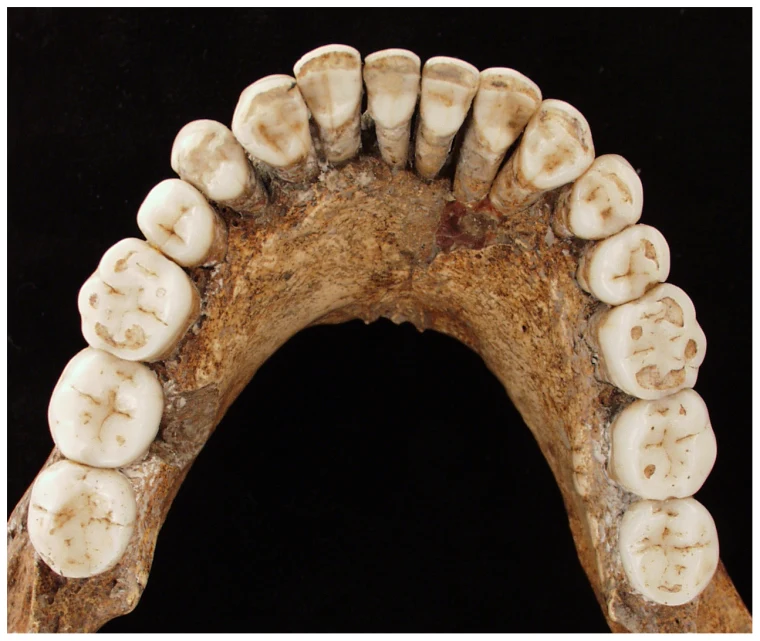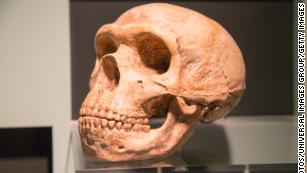Shut Your Mouth! Why mouth breathing is so injurious to your health and well-being
- Pennie

- Feb 16, 2023
- 7 min read

The above is a picture of me on a long haul flight about 10 years ago, sneakily taken my my boyfriend Scott. Well let's face it, I do look rediculous!
Having spent two weeks of January at home, struggling to breath through my nose with a sinus and chest infection, I was inspired to write about nose breathing.
We tend to over-breathe: too many breaths per minute. One might think this would bring in more oxygen but it’s quite the opposite; when we over-breathe we breathe out too much carbon dioxide (CO2). CO2 is not just a waste product, we actually cannot absorb oxygen (O2) without it. With every breath, we undertake a gaseous exchange. Without the CO2, your muscles cannot absorb the oxygen.
Carbon Dioxide is not just a waste product, we actually cannot absorb oxygen without it
Breathing through the nose slows down the breath bringing it lower down into the abdomen, which allows for a much more efficient exchange of O2 and CO2. We don’t lose so much CO2 when we exhale through the nose as opposed to the mouth.
Slow and low nose-breathing helps us to retain more carbon dioxide, which is the thing we need for the body to absorb the oxygen.
Breathing through the mouth is an insufficient way of breathing
So those big gulps of air you take in through the mouth, when you feel like you need more oxygen, are not doing what you think. The body cannot absorb the oxygen from them, as there is too little CO2 to exchange with the O2. A slower breath through the nose, landing lower down in the abdomen, is a much better way to retain more CO2 for a better exchange.
We all have unique tolerance to CO2. Asthmatics, and those suffering from anxiety, tend to have a low tolerance, and, as such, have conditioned themselves to breathe too fast and too much; as a consequence they loose to much CO2 which makes them want to breathe even more. This loss of CO2 also makes breath-holds become more difficult. Breath holds can in fact can increase our tolerance to CO2; thus creating a vicious cycle.
Less oxygen = less energy
Mouth-breathing also speeds up the breath, bringing the breath to the upper chest, which is associated with anxiety, as this puts us into our fight or flight nervous system (75% of the those suffering from anxiety/panic disorder have dysfunctional breathing), and we are unable to absorb as much oxygen that way. Less oxygen = less energy.
"Breathing pattern disorders affect 9.5% of the studied adult population, rising to 29% among people with asthma and 75% of those with anxiety. These figures are not surprising, given that asthma, anxiety, panic attacks, and stress, all negatively influence breathing patterns, feeding back to create a vicious cycle of inefficient breathing.”
The Breathing Cure, by Patrick McKeown
Why has this happened?
Farming, agriculture and the industrialisation of food, softer food and bottle-fed babies have changed the structure of our teeth and the soft and hard palate of the mouth. Therefore many of us have lost the natural ability to breathe properly.
Breathing through the mouth can also alter the structure of the face, elongate it, recede the chin and overcrowd the teeth. I have been a mouth breather most of my life and have a long face and crooked teeth:

Modern teeth are often crooked - show me a Neanderthal skull with teeth like ours. Neanderthal teeth were straight.
This, in turn, has changed the structure of the nasal cavity, making it smaller. Many of us, therefore, find it easier now to breathe through the mouth (myself included), and this is very detrimental to our health in so many ways.
Some dentists believe that mouth-breathing is worse for cavities than sugar
Breathing through the mouth can also change the PH and cause cavities - dentists have known this for over 100 years, and some dentists believe that mouth-breathing is worse for cavities than sugar.
And what we can visibly see is just the tip of the iceberg . . .
Nose-Breathing vs Mouth-Breathing
Nose-breathing is anti-bacterial, anti-microbial and anti-viral. The nose filters the air from impurities, so when you breathe through your mouth all of these impurities are going directly into your lungs. So, for someone like me, living in a heavily populated and polluted city, this is bad news! It is the first line of defence.
Nose-breathing pressurises the air and makes it moist for the throat and lungs; it humidifies the air and conditions it ready for us to absorb the oxygen more efficiently.
The nose produces nitric oxide (NO) which helps to dilate the veins, 'NO' is the main constituent of Viagra!
Therefore breathing through the nose helps to absorb more oxygen, as it can flow more freely through the blood, meaning more energy.
How can we begin to breathe through our nose?
Anyone can breathe through the nose, unless there is an actual deviation or obstruction. If there is no physical obstruction then it may be that the nose is simply stuffy/blocked.
Your nose: Use it or lose it
If we continue to breathe dysfunctionally and/or through the mouth, the nose may well become blocked. There are various ways and means of unblocking the nose. You can see one method here:
Do you breathe through your mouth at night?
About 25% of the population mouth-breathe; if you snore and/or wake up with a dry mouth it is likely that you mouth-breathe.
In October 2020, when I first learnt about how bad mouth-breathing was for our health, I trained myself to breathe through my nose. I now breathe through my nose throughout the night, day, and also when walking and exercising.
Did you know that you can lose up to 42% of the moisture in your body overnight by mouth breathing?
Before October 2020, I took a glass of water to bed with me EVERY night, and had done since I was a small child. My mouth would become so dry due to breathing though it all night. Did you know that you can lose up to 42% of the moisture in your body overnight by mouth breathing? So, if you’re drinking your two litres of water a day then you are, unnecessarily, losing one litre of that good effort overnight.
I never take water to bed anymore, apart from when I was recently sick and had to breathe through my mouth.
How did I change this? When I tell people this they are often astonished and horrified. They usually laugh, too. I use surgical tape to tape my mouth closed each night. I started off with a small piece like this:

Then, truly being a mouth-breather, I realised I was sneaking air in through the gaps in my lips, so I upgraded to this:

I can actually count on one hand the times I have not taped up in these last few years and each time I have felt awful. To me it feels a bit like having a hangover; I am groggy, headachy and lacking in energy and clarity. The worst thing about being sick for me was not being able to breathe through my nose for about four days and nights. I felt so much physically worse for it.
I heard a Dr Rangan Chatterjee interview with James Nestor recently (link below), Dr Rangan thanked James for previously sharing the sleep tape tip. He said his whole family had taken it up and, most interestingly, that his wife (who is usually a later riser than he) now gets up with him early every morning and is generally more energised!
Nose-breathing can give you more energy, due to the increase in the uptake of O2 - feeling fresher!
I certainly felt fresher and more alive when I began mouth-taping and consciously breathing in through my nose during the day. However, what I do notice the most is the grogginess, headaches and fatigue when I do not mouth tape.
I heard of someone losing weight through taping his mouth shut at night - almost a stone
Another anecdotal tale I heard was of someone losing weight through taping his mouth shut at night - almost a stone. It is believed that breathing though the nose can put the body into its natural metabolism and therefore can help you lose weight (I am not promising anything here because I certainly didn’t become lighter).
Mouth-breathing is also associated with snoring and sleep apnea. Breathing through the nose can, in some cases, really benefit snorers and sufferers of sleep apnea; just by using a simple piece of tape. I use Micropore Tape like this:

Mouth-breathing also has links to ADHD:
“Literature also shows that children with breathing problems like snoring, mouth breathing, or apnea are 40–100 times more likely to develop behavioural problems resembling ADHD. As per the data of the National Sleep Foundation, ADHD may be associated with a variety of sleep problems.”
https://www.ncbi.nlm.nih.gov/pmc/articles/PMC8645617/
Another anecdotal tale; I met a woman on a retreat who had been suffering from ADHD for many years. She was just about to succumb to the medication when she read James Nestor’s book ‘Breath - The New Science of a Lost Art’. She, like me, began to mouth tape. I am not sure how long it took but she no longer needed to go on the medication, simply by buying a roll of tape.
As a yoga teacher, I strongly encourage students to breathe through their nose, unless we are practicing a particular pranayama technique which requires mouth-breathing. I watch people working out in the gym or doing other practices and often see them mouth-breathing, especially runners! I am not a runner, yet I have heard tales of runners switching to nose-breathing, which is not easy, and they say eventually they have increased energy, stamina and recovery too.
So, all you runners out there - SHUT YOUR MOUTH! It will be difficult at first. I found it hard just walking, but perseverance will make you feel more energised.
I have just started doing ‘Body Combat’, a martial arts gym class. It is heavy cardio (for me anyway!) and I am able to very easily keep my trap shut all the way through! If you do feel the need to mouth-breath during walking or exercising then stop, continue breathing though your nose, and then begin again.
The mouth should only be used for eating, drinking, talking, laughing and kissing etc. Not for breathing!
It can be very detrimental to your health and well-being to continuously breath through your mouth day to day and, unless there is a physical deviation or actual obstruction, everyone has the ability to do it. It may take a little training to get it back but…
Use it or lose it, baby!
My main sources and some resources for you:
45 hours of additional Pranayama Training with The Shala London
James Nestor ‘Breath - The New Science of a Lost Art’
Patrick McKewon ‘The Oxygen Advantage’
Dr Rangan Chatterjee interview with James Nestor Podcast on YouTube: https://www.youtube.com/watch?v=CFRQOnFDc5o
There are many other interviews and videos about nose breathing and breathing with both James Nestor and Patrick McKeown online.





Comments